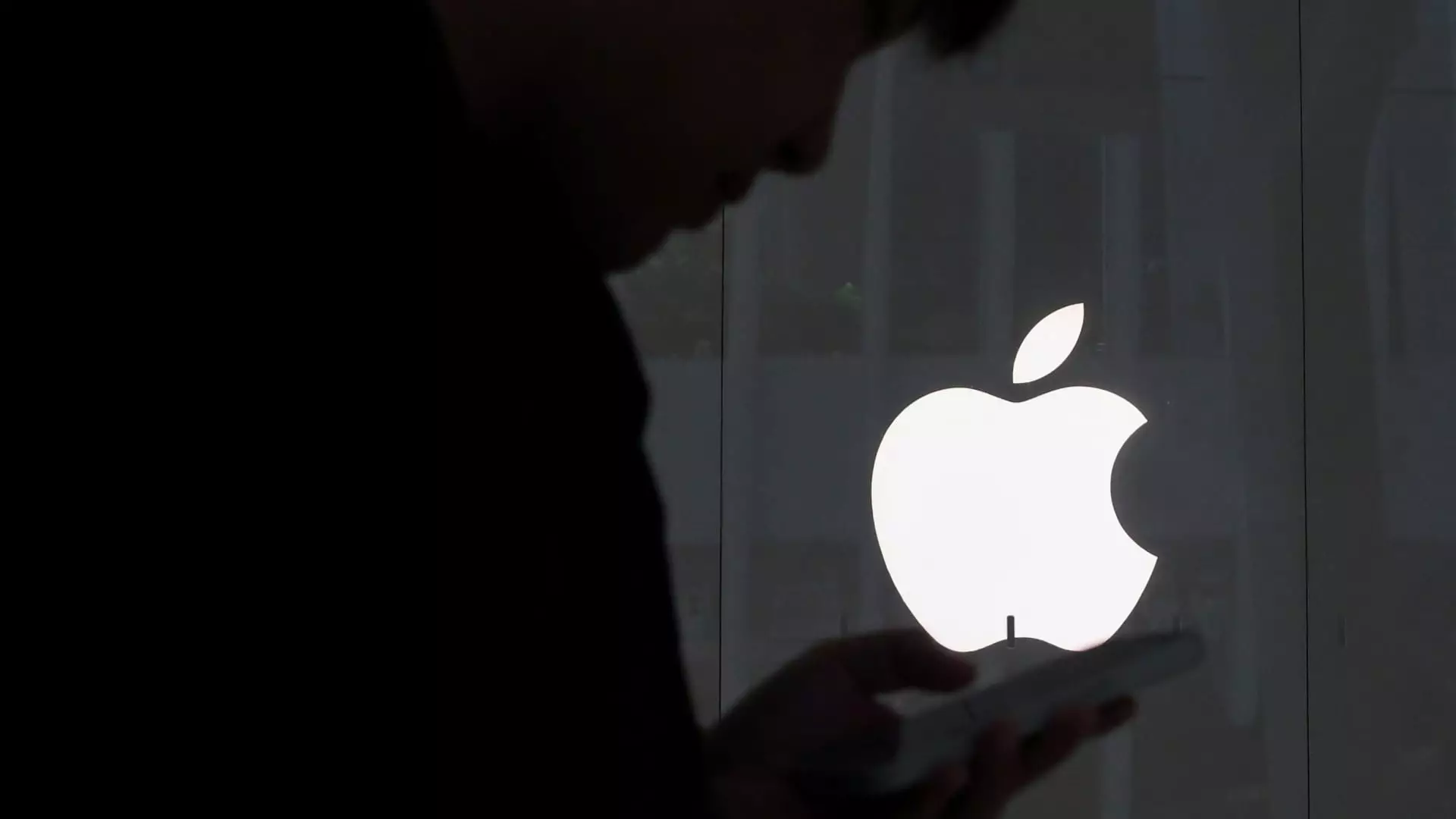Apple Inc. has long been regarded as a titan in the technology sector, synonymous with innovation and unparalleled brand loyalty. However, recent evaluations suggest that this perception may be clouded by an inflated valuation that investors should carefully reconsider. Needham’s recent downgrade of Apple’s stock from “buy” to “hold” signals a significant shift in sentiment, indicating that the company’s financial metrics are becoming increasingly disconnected from its impressive market image. This situation raises critical questions: Is Apple still the invincible giant it once was, or is it simply coasting on past glory while hiding cracks in its foundation?
Costly Valuation and Growth Headwinds
The most alarming aspect of Apple’s position is its forward valuation multiple, which currently stands at a daunting 26 times earnings. Compared to its Big Tech counterparts, this figure appears exorbitantly high given Apple’s slowing growth trajectory. Other competitors have demonstrated twice to thrice the revenue growth and three to twelve times the margin expansion when juxtaposed against Apple’s recent performance. This disparity essentially unravels the argument that Apple deserves its premium valuation. In an environment where tech companies are diversifying their revenue streams and executing strategic pivots, Apple seems to be lagging behind, stuck in a narrative that no longer captivates new consumers or the market.
Ominous Competitive Threats
Apple’s recent strategic missteps add another layer of concern. For instance, the cancellation of its augmented reality glasses project raises questions about its adaptability. With major players like Meta Platforms and Google pivoting towards glasses as the next major tech innovation, Apple risks losing relevance in a rapidly evolving landscape. Analyst Laura Martin’s assertion that Jony Ive’s transition to OpenAI could usher in a new design paradigm away from conventional screens is both tantalizing and alarming. If a new form factor emerges that captivates consumers, Apple’s prevailing dominance could be threatened, potentially relegating it to the status of a follower rather than a leader.
The Sinking iPhone Ship
The iPhone has been the cornerstone of Apple’s success for over a decade, but that cornerstone might be crumbling. The report highlights slowing smartphone demand, which is exacerbated by economic uncertainties and dwindling consumer spending power. With the iPhone being the income lifeblood for Apple’s Services revenue stream, a decline in its sales could spell disaster for the overall financial health of the company. Days are gone when each new iPhone release triggered frenzy among customers; fatigue appears to be setting in, and without a robust replacement cycle in sight, Apple must find alternative avenues to maintain its revenue momentum.
Regulatory and Legal Umbra
Adding to this cocktail of woes is the rising wave of regulatory pressures and litigation risks targeting the tech giant. Apple might be sitting on a cash reserve that offers a semblance of immunity; however, the legal landscape is becoming increasingly perilous, particularly in the wake of growing calls for antitrust measures. One glaring example is the potential risk of losing approximately $20 billion in annual revenue from Google, its default search engine. Such financial vulnerabilities may diminish Apple’s enormous market cap, leaving it exposed.
The Analyst Divide
The haunting reality is that while Laura Martin’s downgrade reflects a growing skepticism, the broader analyst community remains largely optimistic about Apple. Of the 51 analysts covering the company, a staggering 34 still suggest a “buy.” This polarized perspective captures the dilemma facing investors: Are they clutching onto a fading dream of uninterrupted growth, or are they truly understanding the latent risks? In periods of market correction, it is imperative for investors to discern between loyalty to a brand and sober evaluation of its financial fundamentals.
A Call for Realism
The current climate necessitates a critical reassessment of Apple’s valuation and its broader semblance of stability. While the company has managed to thrive due to its established ecosystem and customer loyalty, its long-term growth prospects increasingly resemble an inflated bubble ready to burst. As the competition tightens and consumer preferences shift, investors must scrutinize their positions in Apple with heightened caution. The time has come not just to celebrate tradition but to question whether the past is a harbinger of polished futures—or a veil obscuring impending challenges.


Leave a Reply